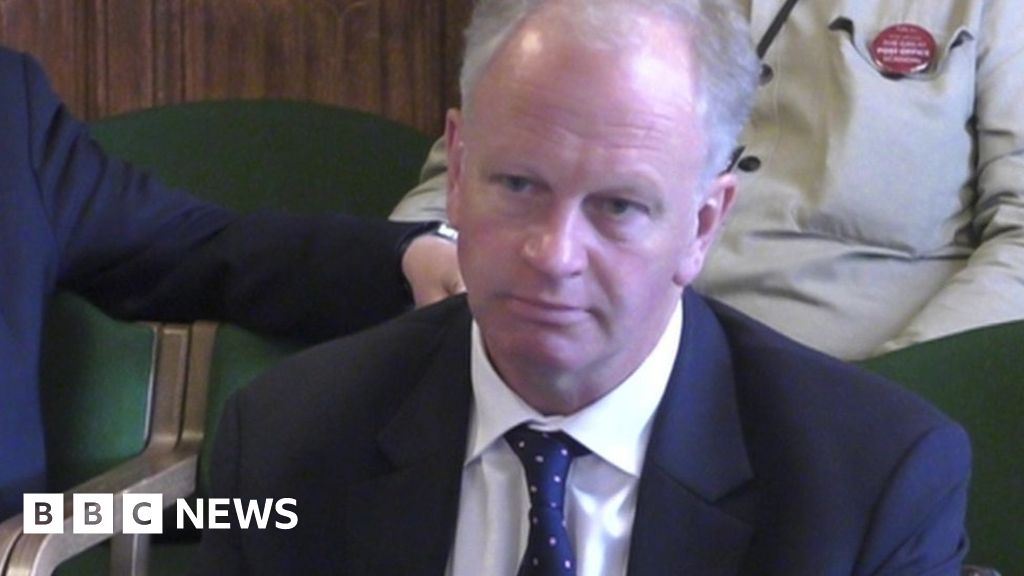- CORPGRO Newspoint
- Posts
- Horizon scandal: "Mistaken" Post Office Bonuses
Horizon scandal: "Mistaken" Post Office Bonuses

What’s the Story?
A public outcry has followed the recent TV serialisation of the Post Office Horizon scandal, "Mr Bates vs The Post Office” leading to unprecedented, proposed new legislation.
The Horizon public inquiry began in February 2022, but was delayed in November 2023 when lawyers acting for the inquiry revealed that about 363,000 emails had been discovered by the Post Office's auditors on a legacy system that had not previously been disclosed.
A few months beforehand, in June 2023, the CEO of the Post Office, reported to the inquiry that 30 of 34 top executives have repaid that part of their 2022 bonus connected to assisting the inquiry in light of the Post Office being accused of misleading the Inquiry into the Horizon sub-postmaster computer scandal.
The Post Office Horizon IT scandal involved a computer system generating inaccurate data which resulted in hundreds of sub-postmasters being wrongly prosecuted for theft.
In 2021, the Court of Appeal overturned 83 criminal convictions. But the process of awarding compensation to those who were incorrectly prosecuted has been very slow, and the Prime Minister has now labelled this matter the biggest miscarriages of justice in UK legal history, and proposes novel legislation to overturn prosecutions and award compensation.
The Post Office Executive bonuses paid were partially on the basis that all “evidence and information“ needed for the Horizon IT Inquiry to “finish in line with expectations” would be provided.
However, the legal team for the inquiry challenged the Post Office’s disclosure that this matter had been “achieved“, and that challenge was agreed by the Post Office’s lawyers.

In fact, the inquiry is now in it’s fourth phase, with phases five - seven taking place over the summer of 2024. A much extended timeline than that envisioned at the outset.
Yesterday, on the Today Programme of BBC Radio 4, Jason Beer KC the leading council for the public inquiry said that Post Office disclosures to the inquiry were poor. He listed seven heads of deficiency and he said:
"This is, of course, the latest in a series of disclosure failings by the Post Office, they may be forgotten to many; they are etched in the memory of those who sit on this side of the room:
Hard copy documents found in new Post Office locations;
The use or the misuse of search terms when conducting the disclosure exercise;
An improper de-duplication exercise;
A failure to consider families of documents when giving disclosure;
A failure to disclose blind copyees to emails;
The failure to give disclosure of documents held on back-up tapes;
The failure to give disclosure of native emails."

Jason Beer KC
Indeed, also on the same programme, Lord Arbuthnot, a member of the Horizon Compensation Advisory Board, and longstanding campaigner on this matter said that the failures of disclosure by the Post Office described by Jason Beer KC were framed:
" In a very measured and mild way. The failures of disclosure, the Post Office essentially keeping secrets, documents and emails that they should have disclosed to the sub-postmasters when they were being prosecuted, let alone to the public inquiry; those failures, they have been legion over the last year, but they have been going on for years."
Why Does it Matter?
Senior executive incentive pay arrangements are intended to align the interests of executives with those of the corporation. Adding a bonus metric which relates to statutory compliance is surprising and may undermine confidence in the principle of incentive compensation.
The Post Office public inquiry bonus had four sub-metrics of inquiry assistance and resulted in the Post Office CEO being awarded a bonus of £54,400 for 2022.
He reported to the inquiry in June 2023 that he believed that part of the bonus paid was a mistake, and that he had repaid £13,600. He also said that 30 of the 34 executives receiving a similar bonus had also chosen to make a voluntary repayment.

Nick Read CEO
But the CEO repayment represented only 25% of the bonus amount, and only 3% of the 2022 incentive total of £455,000 for the CEO.
We can assume the 29 other recipients of the mistaken bonus also voluntarily agreed a similar 25% repayment for that portion of their total bonus. The remaining four bonused executives seemed to have decided against any voluntary bonus repayment at all.
In August 2023, the CEO announced he would repay the 75% remaining balance voluntarily as well, but nothing was said regarding the other 33 Post Office bonus recipients at that time.
Overall it appears that the Horizon inquiry support seems to have been patchy. While the part bonus amounts paid mistakenly under one sub-metric, have mainly been repaid, many of the executives retained 75%, some 100% of the bonus paid in connection with the bonus arrangement.
The integrity of performance pay can be called into question when:
The link between bonus calibration and variable performance is hard to discern
The metric is important enough that failure should reflect in a judgment of the bonus performance overall, not just on a single element alone
The bonus is paid in respect of performance that is incomplete or undelivered; and
The bonus is labelled mistaken, but the remedial action is voluntary, not from invoking available power of Clawback

The 2022 Remuneration Report shows that the Post Office has Clawback powers, at least for Executive Directors. It says this:
"reduction or return of all or part of bonus payments in the event of mis-statement of the accounts, error, gross misconduct, or instances where the Executive Director has contributed to serious reputational damage of the company, a material corporate failure or some other exceptional event.”
The CEO's opinion is that part of the bonus was a mistake. In other words, an "error" and so fully within the ambit of the Clawback disclosed power.
Second, it is hard to see how the ongoing Horizon scandal does not constitute either or both of "serious reputational damage" or "a material corporate failure" for the Post Office. Although how this might be linked to an executive director contribution to those outcome maybe harder to discern.
Newspoint View
Statutory compliance is mandatory. It should not have been selected as an item to calibrate performance pay. Compliance with a formal public inquiry is expected in full. It is a challenge to see how an out-performance result can be judged.
Indeed, if non-compliance with a formal inquiry is observed, surely the outcome should be a significant hit to the total bonus overall (if a bonus is paid at all), rather than only to the bonus portion for the relevant sub-metric alone.
Aside from this, there is also the question of whether the remuneration committee should have, or will, exercise it’s power of bonus Clawback to correct inappropriate payments, rather than rely on voluntary repayment.
In this case we see reported that four of the executives seem to have chosen not to voluntarily repay the bonus at all (as at June 2023), and that 29 of the other 30 may have retained 75% of the overall bonus amount.
Also in June 2023, strengthened powers of Malus and Clawback under the UK Corporate Governance Code were under consideration by the FRC. Perhaps this case illustrates the need; but since then it has been decided not to progress these steps, perhaps to help lower the governance superstructure of UK business compared to that seen elsewhere.
If an item is important to the business, but is unsuited to sensible performance calibration, the use of over-arching remuneration committee discretion regarding the overall result is a better approach than a performance calibration which, with hindsight, looks wonky.
Where this applies, communicating at the outset the Remuneration Committee's intention to use their overall power of discretion is vital. It highlights the issue and by dint of ongoing communication and monitoring, helps guide actions and outcomes throughout the performance period.
In light of the Horizon issue, perhaps the Post Office might consider the Clawback power, and the information now available, which might imply that earlier incentive pay decisions should be revisited.
CORPGRO Helps Companies With:
Please feel free to email or call:
Damian Carnell - [email protected] +44 (0) 7989 337118
VA Bec Bostock - [email protected]
Please share this CORPGRO information with your board or your colleagues.



